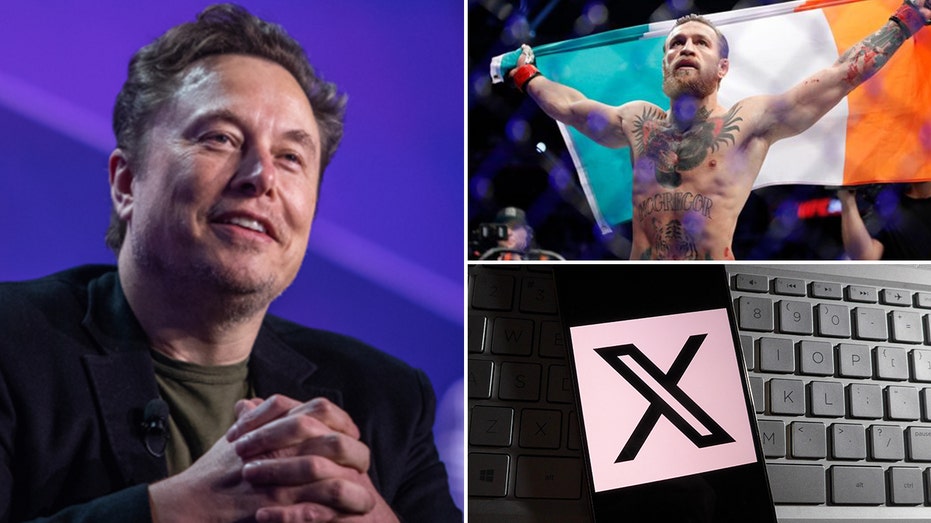The Irish government is dropping parts of its controversial hate speech laws which have been criticized by free speech advocates around the world, including X owner Elon Musk who vowed to fight the legislation in court.
Irish Justice Minister Helen McEntee says that components of a proposed hate speech bill that deals with incitement to hatred or violence have been removed, per RTÉ News.
The measure would have allowed for the jailing of citizens for merely possessing material that criticizes certain protected characteristics, ranging from gender identity to national origin. Some critics have compared it to the concept of punishing people for “thoughtcrime,” a term popularized by George Orwell’s dystopian novel “1984.”
HERE’S WHY IRELAND IS AT A BOILING POINT OVER MASS IMMIGRATION
The move comes as a general election in Ireland looms large, with the current coalition government rapidly approaching the end of its current five-year term. A date for an election has yet to be announced.
The legislation, the Incitement to Violence or Hatred and Hate Offences bill, has already passed through the Dáil, Ireland’s lower chamber, but it had stalled in the Senate, the upper chamber.
McEntee says that most controversial provisions of the bill are being removed and that legislation aimed at bringing forward tougher sentences for physical hate crimes under the bill will proceed.
“The incitement-to-hatred element [of the bill] does not have a consensus, so that will be dealt with at a later stage,” McEntee told RTÉ News.
“This will send a very pure message, if you attack a person, if you commit a crime against a person or a group of people, simply because of who they are, the color of their skin, where they have come from that there will be a tougher sentence, a harsher sentence at the end of the day,” McEntee said.
“I am adamant that hate crime legislation will be enacted,” she said.
The scrapping of the incitement measured in the bill is being viewed as a partial victory for free speech advocates.
The hate speech bill had faced mounting criticism even from government backbenches and some of those in opposition. Ireland’s main opposition party Sinn Féin voted in favor of the bill but later called for it to be scrapped.
According to many online users, the legislation was kept intentionally vague and suggests that people could be jailed for having certain memes saved to their phones or for merely being found in possession of books or videos deemed politically offensive.
Musk had helped shine a global spotlight on the legislation and promised to fund the legal fees of Irish citizens who wanted to challenge the bill.
The billionaire said that X had standing in Ireland, given that its European headquarters is located in Dublin, the nation’s capital. Musk’s group of investors bought Twitter for $44 billion in 2022 and took the company private.
“You have to be able to speak your mind within the context of the law: without that you don’t have a real democracy,” Musk told Irish media outlet Gript. “We’ll make sure that if there is an attempt to suppress the voice of the Irish people that we do our absolute best to defend the people of Ireland and their ability to speak their mind.”
Irish MMA fighter Conor McGregor backed Musk’s efforts.
“We, the people of Ireland, will never tolerate any draconian/corruptible bills being passed into law here. We will not tolerate the attempted removal of our freedom to speak our minds and engage in fair, honest debate,” McGregor said.
“A silly and weak attempt to silence opposition opinion is what this is and WE SAY NO! We will fight this all the way if it is attempted to be pushed forward. We will fight it and we will win. Thank you Elon, as we say in Ireland, fair play!”
Senator Pauline O’Reilly of the Green Party, a coalition partner in the government, sparked fury when she said the hate speech bill was about restricting freedom “for the common good.” A video of her speech went viral.
“You will see throughout our constitution, yes, you have rights, but they are restricted for the common good. If your views on other people’s identities go to make their lives unsafe, insecure and cause them such deep discomfort that they cannot live in peace, then I believe that it is our job as legislators to restrict those freedoms for the common good.”
The Irish government said it felt emboldened to act on the hate speech legislation following riots in Dublin in November. The riots were sparked after an Algerian-born man was arrested and accused of stabbing a woman and three children outside a primary school in the city. The stabbing came amid concerns over migrant-related crime in the country.
Paul Coleman, executive director of ADF International and author of the book “Censored,” said, “It is the responsibility of governments to protect, not squash, free speech.”
“In any democracy, there must be space for disagreement. Ireland’s draconian proposal to ban ‘hate speech’ — something the government refuses to define — will have severe implications for the basic human right to free expression in the public square,” Coleman said in a statement to Fox News Digital.
“It’s clear that where ‘hate speech’ laws have been introduced, the result is a severe crackdown on peaceful expression.”
Coleman argued his point, citing a case in Finland, for example, where parliamentarian and grandmother Paivi Rasanen faced a four-year legal battle and three criminal charges for voicing her faith-based beliefs about human sexuality and posting a Bible verse on X that supported her views.
Fox News’ Brianna Herlihy, Danielle Wallace and Alexander Hall contributed to this report.




